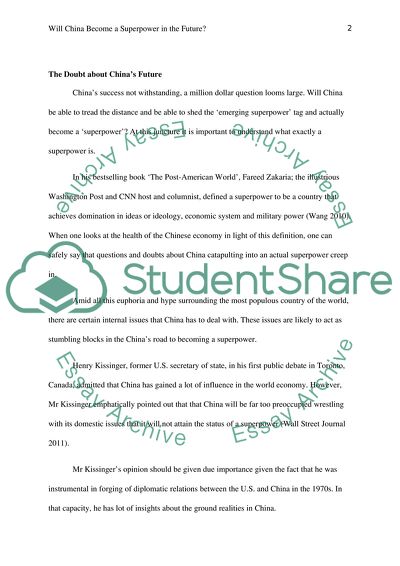Cite this document
(“Will China Become a Superpower in the Future Essay”, n.d.)
Will China Become a Superpower in the Future Essay. Retrieved from https://studentshare.org/geography/1584876-will-china-become-a-superpower-in-the-future
Will China Become a Superpower in the Future Essay. Retrieved from https://studentshare.org/geography/1584876-will-china-become-a-superpower-in-the-future
(Will China Become a Superpower in the Future Essay)
Will China Become a Superpower in the Future Essay. https://studentshare.org/geography/1584876-will-china-become-a-superpower-in-the-future.
Will China Become a Superpower in the Future Essay. https://studentshare.org/geography/1584876-will-china-become-a-superpower-in-the-future.
“Will China Become a Superpower in the Future Essay”, n.d. https://studentshare.org/geography/1584876-will-china-become-a-superpower-in-the-future.


